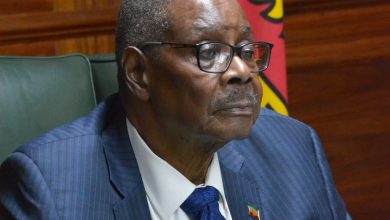Malawians struggle to access healthcare—poll
Findings of a recent Afrobarometer survey show that Malawians are struggling to access public health services with 81 percent of respondents who visited public health facilities stating that they found no medicines.
The survey results were released on Friday and further show that among citizens who visited a public clinic or hospital in the past 12 months, 62 percent said it was “difficult” or “very difficult” to access the services they needed.
“Many others report high costs that prevented them from getting needed care [69 percent], absent medical personnel [50 percent] and facilities in poor condition [46 percent],” reads the survey report.
The report further showed that only four percent of the respondents said they had some form of medical aid coverage to help them pay medical bills if they get sick while 58 percent of them relied on private health insurance schemes.

Reacting to the findings in an interview yesterday, Parliamentary Committee on Health chairperson Matthews Ngwale said the results are a true reflection of the situation on the ground.
He said Malawi has not achieved its target to construct 900 health posts while healthcare workers and medicines are also inadequate in public health facilities.
The survey was conducted in August 2024 with a sample size of 1 200 respondents. Ironically, the United States Agency for International Development (USAid), one of the key financiers of healthcare initiatives, suspended its aid in January this year, meaning that the situation could be worse if the survey was conducted now.
Ngwale said the health sector relies heavily on donors, but the withdrawal of USAid support should compel government to implement the national health financing strategy which provides ways of scaling up domestic resource mobilisation.
“We need to make sure that some of the drugs should be purchased by ourselves, otherwise depending on donors for our healthcare will not take us far,” he said.
In separate interviews yesterday, Physician Assistants Union of Malawi president Solomon Chomba and Amref Health Africa in Malawi country director Hester Nyasulu called on the government to introduce levies to finance the health sector.
To fill the funding gap, Chomba said the government could establish national health insurance for people that can afford but impose levies on commodities that leave people at risk of non-communicable diseases to help cover financing gaps in the public health sector.
On his part, Nyasulu said people also need to be empowered to report their complaints to hospital ombudspersons so that some of the challenges are dealt with at community level.
In the 2025/26 National Budget, K764.4 billion was allocated to the health sector, up from K729.47 billion in the previous financial year. Out of the amount, K63 billion was for procurement of medicines and laboratory items, but the Parliamentary Cluster Committee on Health said in March that K138 billion was required.
According to the 2024 Annual Economic Report, 55 percent of the country’s health expenditure comes from development partners while the government contributes 24 percent and the remaining 21 percent comprising health insurance and out-of-pocket expenditures.
Under the Health Sector Strategic Plan III covering the period 2023-2030, Malawi targets to improve access to health services by increasing the percentage of health facilities providing minimum quality of care standards from 39 percent in 2019 to 75 percent in 2030.





